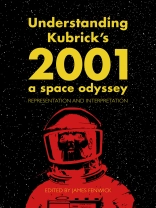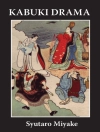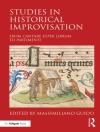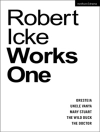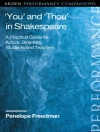Scholars have been studying the films of Stanley Kubrick for decades. This book, however, breaks new ground by bringing together recent empirical approaches to Kubrick with earlier formalist approaches to arrive at a broader understanding of the ways in which Kubrick’s methods were developed to create the unique aesthetic creation that is 2001: A Space Odyssey. More than 50 years after its release, contributors explore the film’s still striking design, vision and philosophical structure, offering new insights and analyses that will give even dedicated Kubrick fans new ways of thinking about the director and his masterpiece.
Inhoudsopgave
Introduction: Forging new perspectives
James Fenwick
Part One: Narrative and Adaptation
–
Chapter One: ‘God, it’ll be hard topping the H-bomb’: Kubrick’s search for a new obsession in the path from Dr. Strangelove to 2001: A Space Odyssey
Simone Odino
Chapter Two: 2001: A Space Odyssey: A transcendental trans-locution
Suparno Banerjee
Chapter Three: Four-colour Kubrick: Jack Kirby’s 2001: A Space Odyssey as adaptation and extension
Dru Jeffries
Part Two: Performance
–
Chapter Four: Performing the man-ape in ‘The Dawn of Man’: Daniel Richter and The American Mime Theatre
James Fenwick
Chapter Five: Life functions terminated: Actors’ performances and the aesthetics of distanced subjectivity in 2001: A Space Odyssey
Vincent Jaunas
Part Three: Technology
–
Chapter Six: From technical to cinematographic objects in 2001: A Space Odyssey
Antoine Balga-Prévost
Chapter Seven: Homo machinus: Kubrick’s two HALs and the evolution of Chapter Seven: Homo machinus: Kubrick’s two HALs and the evolution of monstrous machines
Cynthia J. Miller and A. Bowdoin Van Riper
Part Four: Masculinity and the Astronaut
–
Chapter Eight: Clarke and Kubrick’s 2001: A queer odyssey
Dominic Janes
Chapter Nine: ‘But as to whether or not he has feelings is something I don’t think anyone can truthfully answer’: The image of the astronaut in 2001: A Space Odyssey and its lasting impact
Nils Daniel Peiler
Part Five: Visual Spectacle
–
Chapter Ten: Negative/Positive: Metaphors of photography in 2001: A Space Odyssey
Caterina Martino
Chapter Eleven: The sublime in 2001: A Space Odyssey
Rachel Walisko
Part Six: Production
–
Chapter Twelve: 2001: A comprehensive chronology
Filippo Ulivieri
Over de auteur
James Fenwick is a Senior Lecturer in Creative and Cultural Industries at The University of Manchester.
